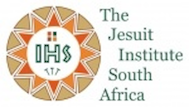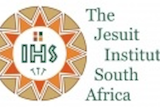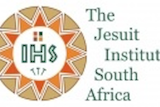Reflection: Afraid of the Contemporary World?

Source: Jesuit Institute South Africa
Ethnocentrism, Multiculturalism, and the 'Benedict option'
There is a recent renewal of the trend of conservative families - of both Catholic and other Christian denominations - to retreat from the hustle and bustle (and “evil”) of modern city life. This has come to be known as the “Benedict option” - named after the 6th century St Benedict who was famous for the monastic communities he founded.
People, fearful of the effect that the increasingly secular and anti-Christian world is having – or could have – on their families, are retreating to small, isolated, and often rural communities in an effort to protect them. Common effects of this isolationism can include the development of a strong sense of ethnocentrism – the notion that one’s culture and ideologies are superior, and therefore all other cultures should be judged in comparison.
Ethnocentrism is often associated with racism and xenophobia, and can be devastating as we saw in the recent tragedy in Charlottesville, Virginia. This is only a small example of its destructive power however.
Any ideology that suggests “we” are better than “them” promotes conflict and animosity, and often ultimately leads to profoundly anti-social and divisive, even violent behavior. White supremacy, while a horrendous and rather obvious example, is not the only, or even the worst example of violent ethnocentrism. The genocidal movements in Syria, Sudan, the DRC, Ethiopia, and Burma/Myanmar in the recent past, and many other more current situations, clearly illustrate how terrible the results of ethnocentricity can be.
The kind of isolationism fundamental to the 'Benedict option' while possibly appropriate for cloistered monks, is no way to raise a family. Isolationism by its very nature discourages cultural relativism, and therefore multiculturalism. Children raised in this sort of context are often subjected to a very narrow world view, and, as a result, could develop, among other extreme biases, a strong sense of ethnocentricity.
In my own experience with home-schooling (which can be a sort of isolationism if parents aren’t careful), children exposed exclusively to people with similar paradigms, often tend to either rebel in extreme ways – fulfilling their parent’s worst fears about the world – or become single-minded, anti-social fanatics, unable to consider the legitimacy of any paradigm but their own. It is the latter who often join extremist movements, where their socially unacceptable ideologies are not only encouraged, but celebrated.
The opposite side of the coin – multiculturalism – is, unfortunately, not completely without problems of its own. Multiculturalism is the presence of, or support for the presence of, several distinct cultural or ethnic groups within a society, but is often fraught with contention. How does a multicultural society decide which aspects of various cultures to celebrate – in the pursuit of freedom of cultural expression, and which to curtail – in the interests of basic human rights and several other social issues.
While raising children is never an easy prospect, the answer is that parents should rather encourage their children in their faith while teaching them how to effectively deal with the modern world, encouraging open and enquiring minds, tolerant and accepting of people from all demographics.
Follow the Jesuit Institute on twitter @JesuitInstitute
Read more reflections by Francis Tuson: www.jesuitinstitute.org.za/index.php/author/francis-tuson/


















